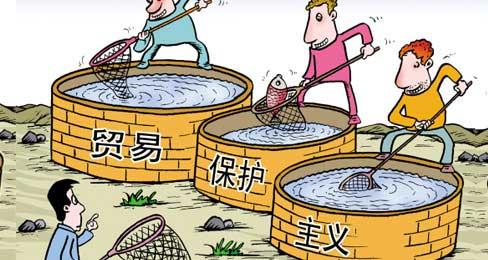According to foreign media reports, US Trade Representative Robert Hitler said on the 22nd that Trump has approved the proposal to impose protective tariffs on imported large domestic washing machines and imported solar cells and panels. This news has attracted many countries' attention. According to the analysis, this shows that Trump has further implemented the long-awaited “US priority†trade policy. Some market participants have criticized that this move may trigger a trade war risk. Hitler said in a statement on the same day that the decision was made after the US International Trade Commission investigation. These two imported products "is an important cause of serious damage to domestic manufacturers." "The president's actions have once again shown that the Trump administration will always protect American workers, farmers, farmers and businesses in foreign trade." The protective tariffs imposed on these two imported products will start at a higher rate in the first year and gradually decline in the following years. In the first year, imported washing machines were within 1.2 million units, and a 20% tariff was imposed, exceeding 1.2 million taxes. For imported solar cells and panels, the United States will tax 30% of the first year for products over 2.5 GW, and fall to 25%, 20% and 15% for the next three years. It will also be supplemented by an import quota policy. The above-mentioned actions of the US government are not only responding to the industry's request for relief for the influx of a large number of low-priced products into the United States, but also marking the beginning of a series of new trade enforcement actions by the government. These protective tariffs are said to target Asian manufacturing companies, including Chinese solar panel producers and Korean washing machine producers. However, the US government did not mention any exemptions for any country when it announced its measures, so the new policy will also affect trading partners such as Mexico, Canada and Europe. In terms of tariffs on washing machines, South Korea and Mexico will suffer the most losses. Both countries export a large number of washing machines to the United States, most of which are from Korean giants Samsung and LG. The increase in tariffs will increase the price of imported washing machines in the US market, and the price advantage of competing with US washing machine manufacturers will no longer exist. This is good news for the US domestic washing machine manufacturers. The Mexican Ministry of Economic Affairs on the same day criticized the US decision to impose tariffs on imported washing machines and solar panels, saying that it would take all available legal means to ensure that the United States fulfilled its international obligations. The Ministry of Economic Affairs issued a statement saying that "the United States did not exclude Mexico from its decision-making today. Mexico regrets this." The ministry said in a statement that the United States imported about 278 million US dollars worth of washing machines from Mexico in 2016, and the value was about 11.27. Billion dollars of solar panels. The South Korean government’s protest on the 23rd is regrettable and will appeal to the World Trade Organization. South Korean Trade Minister Kim Jong-sung said that the decision made by the United States is to put political considerations above global standards. Bloomberg commented that Trump's tax on solar imports would have a heavy blow to the renewable energy industry and could adversely affect the $28 billion industry, with 80% of the industry's products dependent on zero production abroad. part. In recent months, only the threat of tariffs has shaken the status of solar developers, some people have hoarded solar panels, and others have delayed project implementation because of the expected increase in costs. The Solar Industry Association estimates that tens of thousands of people will be unemployed. The introduction of the new policy has made the outside world more concerned about whether to impose new tariffs on steel imports. "What we worried about last year may happen this year," said Spencer, global head of economics at Deutsche Bank in Hong Kong. “In addition to the geopolitical realm, trade-related concerns may be the biggest external risk we face, as the entire cycle of Asia is still export-oriented.†Government initiatives have led to criticism from free-market economists who warn that consumers may face new costs and risk of trade wars. Shenzhen Scodeno Technology Co.,Ltd , https://www.scodenonet.com